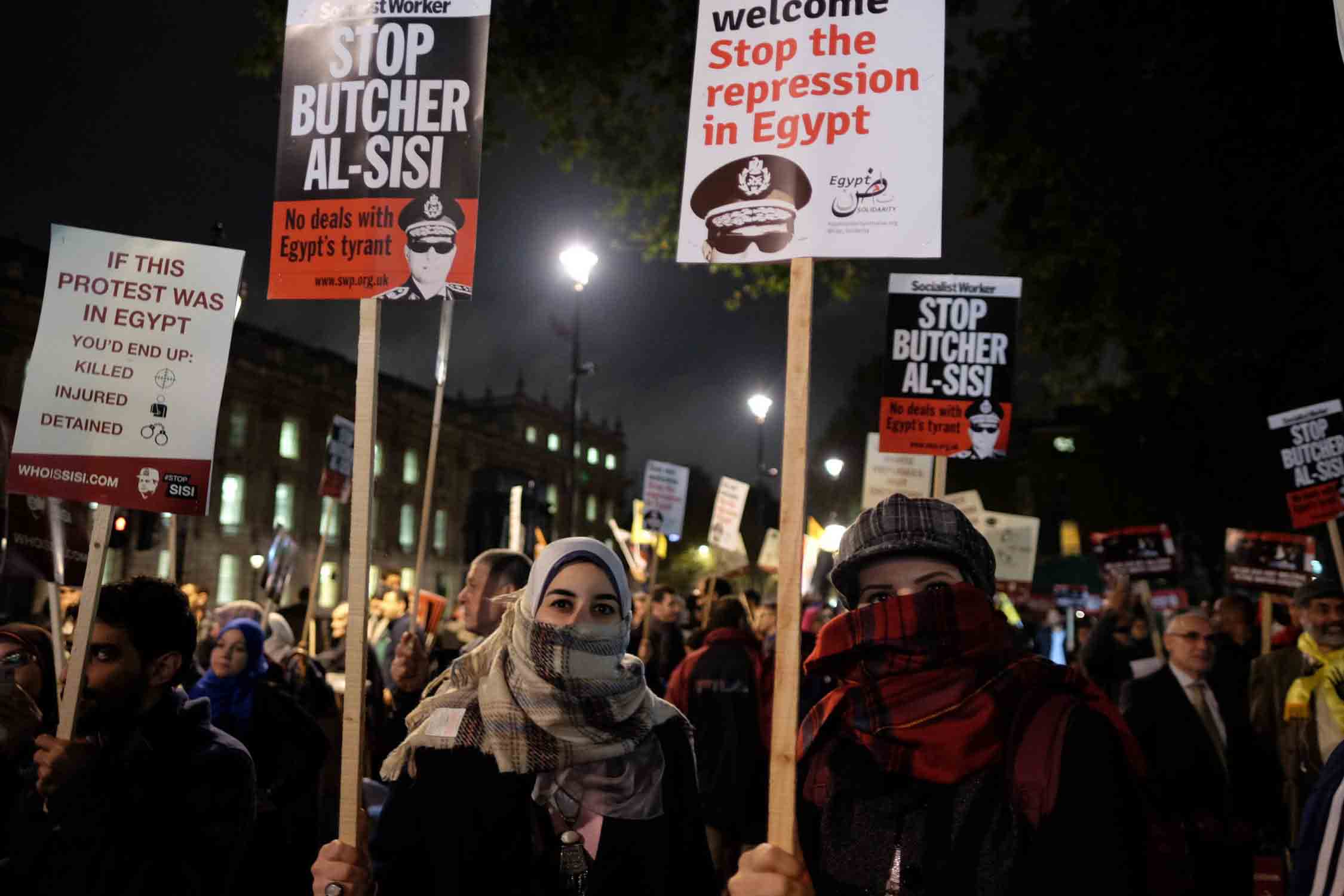Egyptian Protests- “Springing” Back
October 1, 2019 | Expert Insights

Background
Egypt has been experiencing political unrest and upheaval in a continuum. The Arab Spring had triggered mass protests in 2011 which earned global empathy and admiration. It had seemed as if a cleansing process had finally begun with the ouster of the oppressive Hosni Mubarak regime followed by his controversial trial.
But Egypt was to slide back into the abyss within two short years. Propped up by the Muslim Brotherhood, President Morsi was elected but did not survive long. As was broadly expected, in 2013 the Army Chief Abdul Fattah al Sisi overthrew Morsi in a coup. A year later, Sisi strengthened his position by getting himself elected as the President and won a second 4-year term in 2018.
In a country shaken by Islamic terrorism, burdened by an overbearing military and fractured with sharp divisions between a rich and powerful minority and teeming have-nots, Sisi’s coming was cautiously welcomed and was seen as a vote for stability. But there were also underlying fears of authoritarianism that prevailed under Mubarak.
Analysis
A throwback to the of Arab Spring resurfaced in Cairo’s streets last week. Hundreds of Egyptians were arrested in Cairo, Giza and Port city of Suez as they defied the de-facto six-year ban on demonstrations. The protestors demanded the resignation of President Abdel Fateh El-Sisi whom they had elected twice with a near-total majority- 97%!
The waning popularity of Sisi is not surprising, as he has failed to address the political and economic ailments of his country. Egypt witnessed a return to crackdown and imprisonment -dissidents, opposition politicians, activists, journalists, popular bloggers and others. Citing the ongoing civil war in Iraq, Libya and Syria, he invoked security and stability as the pillars of his rule. In the latest rounds of arrests after the protests, human rights lawyer Mahienour el Massry was arrested for representing arrested protestors. The arrests are on serious terrorism charges. Apparently, the government intends to nip any fresh Arab Spring at the bud and cement the rule of the current dispensation.
The demonstrations were largely in response to an online call by self-exiled businessman Mohammed Ali. Ali, formerly a military contractor, has accused the Sisi regime of corruption. To justify his accusations, he cited the building of luxurious hotels, presidential palaces and a tomb for the President’s mother. "This is a people's revolution ... We have to link up together as one ... and organise going down to the major squares," Ali said in a Facebook appeal to his followers.
The President has denied the allegations, proclaiming his honesty and loyalty to the people and the military. Egypt’s state information services (SIS), which accredits foreign representatives, is carefully monitoring the protest coverage. The SIS warned of situations where social media is taken as a source of news because of the spread of fake news. The Egyptian authorities have reportedly limited access to certain websites and Facebook messenger.
Assessment
- The protest is hardly surprising considering the economic and social predicament of Egypt. Consequent to a US $ 12 billion IMF loan in 2016, strict austerity measures and rising prices of food and essentials have affected the masses. According to official statistics, nearly one in three Egyptians lives below the poverty line. It would be politically prudent for the current political dispensation to remember that the spark that lit the Arab Spring was a shortage of food-no wheat to bake bread!
- Egypt has landed itself in a bind with political control concentrated in a single man and his coterie. While riots on account of food shortages are close to breaking out in the streets, Morsi has set plans to build a capital city in the deserts with Chinese funding. The first phase alone is to cost US $ 45 Billion!
- The government machinery has been in top gear trying to play down the protests and project it as frustrations of the youth.
- At this juncture, it is difficult to know what the motives of Mohammed Ali are. In his videos, there has not been sufficient proof of his misgivings against the government. However, by responding to his videos, the President does see it as a threat to his power.
- In suppressing dissent and arresting protestors, the Egyptian government is only going to give way to more such protests. Egypt has already suffered under years of dictatorship and despite the Arab Spring, it is back to a similar repressive regime.
- The protests may be reminiscent of the Arab Spring, but in content and spread they are no match to the original. One thing is clear that they lack political leadership or direction and seem more spontaneous than contrived.
Image Courtesy: wikimedia commons








Comments